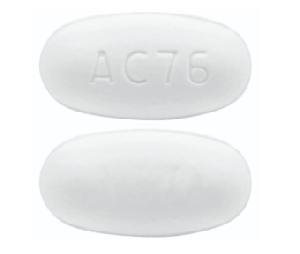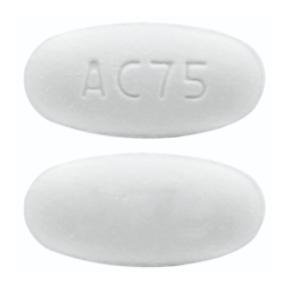
What is Etravirine?
Etravirine, an antiviral medication that is often used in conjunction with other medications to treat HIV (human immunodeficiency), is an effective treatment. HIV is the cause of acquired immune deficiency syndrome. ( AIDS). Etravirine does not cure HIV or AIDS.Etravirine can be used by adults and children older than 2 years.This medication guide does not list all possible uses of etravirine.
Side effects of Etravirine
If you experience symptoms of an allergic reaction, such as hives, difficulty breathing, swelling on your face or in your throat, or a severe reaction to the skin (fever or sore throat with burning eyes, skin pain or blistering, or a red or purple rash), seek emergency medical attention.If you experience a severe drug reaction, seek medical attention. Symptoms include skin rash or hives, muscle pain, weakness, unusual bruises, or yellowing.
Etravirine can cause serious side effects. If you experience:
- Unexplained muscle tenderness or weakness,
- Fever, unusual fatigue
- Dark-colored urine
- Any type of skin rash, no matter how mild,
Etravirine can affect your immune system and cause side effects. These may occur weeks or even months after taking etravirine. Tell your doctor about:
- Signs of an infection: fever, sweating at night, swollen lymph glands, colds, sores; coughing, wheezing; diarrhea; weight loss.
- If you have difficulty speaking or swallowing, have problems with balance, eye movements, or weakness, or feel prickly, then it could be a sign of a problem.
- Impotence, menstrual changes, swelling of the neck or throat (enlarged thyroid)
Etravirine can cause a variety of side effects.
- Diarrhea;
- You may experience tingling or numbness in your feet or hands.
- Rash;
- Changes in the shape or location (especially of your arms, legs, and breasts), as well as changes in the amount of body fat.
There may be other side effects. For medical advice on side effects, call your doctor. The FDA can be contacted at 1-800-FDA-1088 to report side effects.
Warnings
Etravirine should be taken with other HIV medications. Some drugs can increase or decrease your blood level of etravirine. Etravirine may also alter the blood levels of other drugs. It can also increase the side effects of your medications or decrease their effectiveness. LET YOUR DOCTOR KNOW ABOUT ANY OTHER MEDICATIONS YOU USE.
Before you take this drug
If you have an allergy to etravirine, it is best not to take it.Inform your doctor if any of the following conditions have occurred: liver disease; hepatitis B and CEtravirine should be taken with other HIV medications. Certain combinations of medications should not be taken with etravirine. Inform your doctor of all the medicines you are taking and those that you stop or start using.Inform your doctor that you are pregnant. You may need a different dose during pregnancy. Take your medication as directed to treat your infection. HIV can be transmitted to your child if you do not control the virus during pregnancy.You may find your name on a registry that tracks the effects of antiviral medicines on your baby.Breastfeeding is not recommended for women with HIV/AIDS. Even if the baby is not born with HIV, it can be transmitted to the child through your breast milk.
How to take Etravirine?
Etravirine should be taken in conjunction with other antiviral drugs and not alone.Read all instructions or guides that come with your medication and follow all directions. Follow the directions on the label.It is best to take etravirine after eating. Take it with a full stomach.The dose of etravirine is based on the weight of the child. If your child loses or gains weight, the dose needed may change.Etravirine tablets should not be crushed, chewed, or broken. It is best to swallow it whole with a liquid like water.If you can't swallow the tablet whole, put it in a glass and add a teaspoon of warm water. Stir the water until it looks milky. Add another tablespoon of water (or orange juice, milk, sports drink, etc.). This mixture should be consumed immediately. Pour more liquid into the glass and swirl it gently. Then drink immediately. Continue to add liquid and drink until you have drained the entire glass.Medical tests will be required frequently.Keep the tablets at room temperature and away from moisture.Read all the instructions and medication guides that you receive. Do not alter your dosage or schedule without consulting your doctor. Each person living with HIV should be under the care and supervision of a physician.
Details on dosage
Adult dose for HIV infection:
Take 200 mg twice daily, after meals.
Comments:
The same dose is recommended for pregnant and adult patients.
Use: As a combination with other antiretroviral drugs for the treatment of HIV-1 infection among patients who have received antiretroviral therapy.
The usual pediatric dose for HIV infection is:
Two to 18 years old:
Weight 10–20 kg: Take 100 mg twice daily after meals.
Weight 20 kg to 25 kg or less: Orally, 125 mg twice daily after meals
Weight 25–30 kg: Take 150 mg twice daily after meals.
Weight at least 30 kg, 200 mg twice daily after meals
Use: As a combination with other antiretroviral drugs for the treatment of HIV-1 infection among patients who have received antiretroviral therapy.
What happens if I miss the dose?
If you miss a dose by more than six hours, skip it. Never take two doses of the same medicine at once.Refill your prescription before you run out.
What happens if I overdose?
Call 1-800-222-1222 for poison help or seek immediate medical attention.
What should be avoided?
Etravirine does not stop the spread of your illness. Share razors and toothbrushes. Speak to your doctor about the best ways to prevent HIV from being transmitted during sex. Even healthy people should never share syringes for drugs or medicines.
Interaction with other drug
It is sometimes not safe to take certain medications together. Some drugs may affect the blood levels of drugs that you are taking, causing side effects or making them less effective.
Inform your doctor of all the medications you are taking. Many drugs can interact with etravirine.
- Other drugs to treat HIV
- Antifungal or antibacterial medicine
- A blood thinner
- Heart rhythm medicine;
- Medicine for erectile dysfunction or pulmonary arterial hypertension
- Medicine to prevent organ rejection;
- Hepatitis C treatment with medicine
- Medicine to treat opioid dependence
- Medicine to prevent or treat malaria
- Seizure medication;
- Statins are cholesterol medications,
- John's wort
This list is incomplete, and other drugs can also affect etravirine. These include prescription and over-the-counter medicines, vitamins, and herbal products. This list does not include all possible drug interactions.




